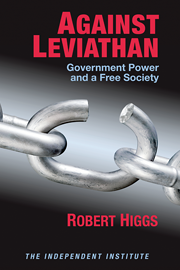When I first began to read serious books on politics and government, back in the 1960s, I fell into much admiration for the writings of the New Left sociologist C. Wright Mills. He is prob ably best remembered for his variant of elite theory, as laid out in his book The Power Elite (Oxford University Press 1956), but he influenced me at least as much by what he wrote in The Sociological Imagination (Oxford University Press 1959). Between those two volumes, however, he wrote a little book called The Causes of World War Three (Simon and Schuster 1958). In that passionate and ideologically inspired tract, Mills explicated a concept that I have called to mind frequently over the years—never more however than in the past year and a half—the concept of “crackpot realism.”
For Mills, this signified a frame of mind characteristic of what another elite theorist, Thomas R. Dye, has called “the serious people” of the governing circles. Such people are to be distinguished from the glad-handing, back-slapping buffoons who seek and gain election to public office. The electoral office seekers are specialists: they know how to get votes, but as a rule they know nothing about how to “run a railroad,” whether that railroad be a business, a government agency, or any other sort of large operating organization. So, after the election, the elected office holders always turn to the serious people to run the show—the Dick Cheneys and the Donald Rumsfelds, to pick not so randomly from the current corps.
The serious people always pretend to be the grownups, as opposed to the starry-eyed rest of us, who couldn’t run Halliburton or G. D. Searle & Co. if our lives depended on it. These are the sorts of executives who are tempted to, and sometimes actually do, roll their eyes at the silly questions journalists ask them at press conferences. Visibly pained by the necessity of spelling out the facts of life, they explain that childish things, such as keeping the country at peace, simply won’t get the job done. Sometimes, the public must recognize that as a no-nonsense response to the harsh situation we face, the serious people have to drop some bombs here and there in order to reestablish a proper arrangement of the world’s currently disordered affairs. The serious people are frequently to be found “stabilizing” something or other.
Trouble is, Mills explained, these serious people are fools. They seem to know what’s going on, and how to right what’s wrong with the world, only if one accepts their own view of how the world works. So “practical” are these serious people, however, that they understand nothing beyond their noses and outside the circle of their own constricted understanding and experience. Strange to say, the power elite does not get out much—remember the first President Bush’s amazement when he, a former Director of Central Intelligence, visited a supermarket and encountered for the first time the mind-boggling technology of a bar-code reader at the checkout counter. Especially when these movers and shakers deal with matters of war and peace, they continue to make the same sorts of disastrous decisions over and over, constantly squandering opportunities to maintain the peace, almost invariably painting themselves into corners of their own making, and all too often deciding that the only option that makes sense in their predicament is to bomb their way out.
As my education continued, I outgrew many of the lessons I had learned from Mills, whose own understanding of social science was flawed in various ways. Still, he had some powerful insights, especially about political sociology, and even today I do not hesitate to recommend that young scholars read his major works. Among the more timeless of his insights, I believe, is his understanding of crackpot realism. I extract a few lines here to illustrate his thinking about this matter (taken from pp. 86–88 of The Causes of World War Three). As you read these thoughts, consider whether they might be as applicable today as they were forty-five years ago.
In crackpot realism, a high-flying moral rhetoric is joined with an opportunist crawling among a great scatter of unfocused fears and demands. In fact, the main content of “politics” is now a struggle among men equally expert in practical next steps—which, in summary, make up the thrust toward war—and in great, round, hortatory principles. (p. 86)
. . . The expectation of war solves many problems of the crackpot realists; it also confronts them with many new problems. Yet these, the problems of war, often seem easier to handle. They are out in the open: to produce more, to plan how to kill more of the enemy, to move materials thousands of miles. . . . So instead of the unknown fear, the anxiety without end, some men of the higher circles prefer the simplification of known catastrophe. (p. 87)
. . . They know of no solutions to the paradoxes of the Middle East and Europe, the Far East and Africa except the landing of Marines. Being baffled, and also being very tired of being baffled, they have come to believe that there is no way out—except war—which would remove all the bewildering paradoxes of their tedious and now misguided attempts to construct peace. In place of these paradoxes they prefer the bright, clear problems of war—as they used to be. For they still believe that “winning” means something, although they never tell us what. (p. 88)
. . . Some men want war for sordid, others for idealistic, reasons; some for personal gain, others for impersonal principle. But most of those who consciously want war and accept it, and so help to create its “inevitability,” want it in order to shift the locus of their problems. (p. 88)
Besides Mills’s own writings, readers interested in his ideas may wish to read the well-done biography by Irving Louis Horowitz, C. Wright Mills: An American Utopian (The Free Press 1983).



















